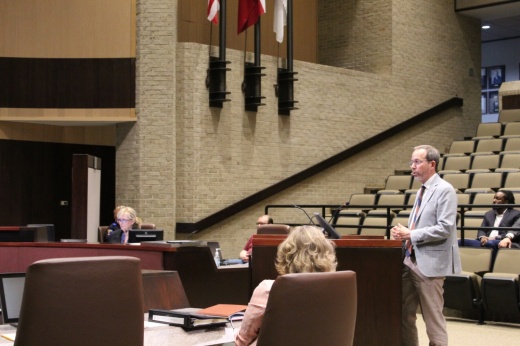Results from the community survey, which concluded in May, will inform the discussions of a short-term rental citizen task force. The task force is slated to hold its first meeting later in June.
In a nutshell
Jeff Barton, co-founding partner of Gap Strategies, briefed council members June 12 on the status, schedule and goals of the short-term rental study. He presented results of the community survey on short-term rentals and shared a timeline for moving forward.
Gap Strategies, a consulting firm specializing in public policy, public involvement, urban planning and infrastructure, was directed by the city earlier this year to help with the survey and the task force.
The city had commissioned a survey earlier in the spring to better understand community attitudes and concerns related to short-term rentals.
Short-term rentals are residential properties that can be rented for less than 30 days through websites such as Airbnb and Vrbo.
Results show the survey garnered 6,109 responses from the community, the majority of which “expressed concerns around STRs and how they affect their quality of life in Plano,” according to council documents.
Age was a significant factor in survey responses with more than 73% of respondents reported to be older than 45 years old.
By the numbers
- About 10% of respondents reported they would be moderately uncomfortable with a short-term rental on their block.
- About 31% of respondents believe they live near a short-term rental.
- About 44% are unsure if they live near a short-term rental.
- About 26% reported they did not live near a short-term rental.
- About 78% of respondents reported not witnessing or personally experiencing any benefits with short-term rentals in Plano.
- About 79% believe that living next to a short-term rental decreases property values.
- About 44% reported they have not personally experienced any challenging situations attributed to short-term rental updates.
- Respondents were asked to select “challenges” they “personally experienced” with short-term rentals. They were allowed to select more than one. The top three reported challenges were:
- Parking: 42%
- Safety: 36%
- Noise: 34%
What’s next
The task force is slated to meet three times before presenting initial recommendations to the council and Plano Planning and Zoning Commission in the fall. The task force, appointed by the council, is composed of 20 citizens with three alternates and is chaired by former Mayor Phil Dyer.
The task force will focus on the following overarching questions:
- Do short-term rentals affect the quality of life of Plano residents?
- Are there places in Plano that are appropriate for short-term rentals to operate?
- How should city officials think about the future regarding short-term rentals in Plano?
- How best can the city address short-term rentals?
The town hall is slated for Aug. 23 and will be available online and in person, according to a council presentation.
Council and commission members can direct the task force to explore additional areas and questions during a second phase of the study. In that case, the task force will present more recommendations to city staff during the preparation of any actions, rules or ordinances developed for consideration before the interim ban on short-term rentals expires May 15, 2024.
Editor's note: The headline has been updated to clarify that more than 60% of survey respondents were concerned about short-term rentals.





